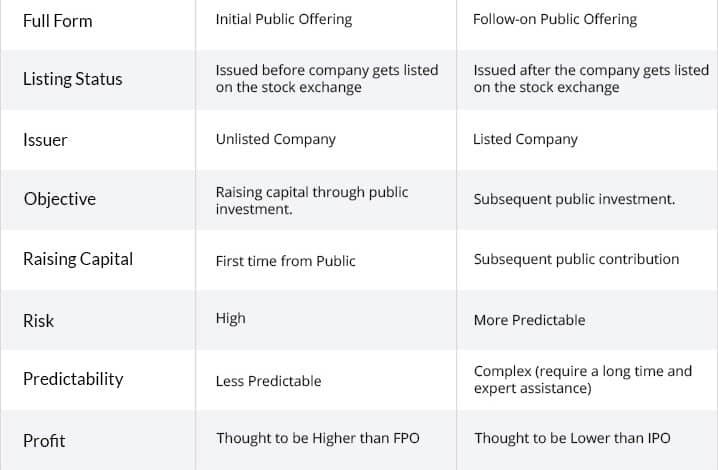What is Rta in IPO: Ultimate Guide to Registrar & Transfer Agent

RTA stands for Registrar and Transfer Agent. In an IPO, an RTA plays a key role.
They manage the shareholding process and ensure smooth operations. When a company goes public, handling shares becomes complex. This is where an RTA steps in. They maintain records of shareholders, handle transactions, and ensure compliance with regulations. RTAs are crucial in managing the paperwork and electronic records.
They help in the allotment of shares and manage investor communications. Understanding the role of an RTA can help investors. It shows the importance of behind-the-scenes operations in an IPO. This knowledge can make the process clearer and more transparent for new investors. In this blog, we will dive deeper into the role and importance of RTAs in IPOs.

Credit: www.youtube.com
Introduction To Rta In Ipo
Understanding the role of the Registrar and Transfer Agent (RTA) in an Initial Public Offering (IPO) is crucial. RTAs are key players in ensuring smooth transactions and maintaining accurate records. This section will introduce you to what an RTA is and their importance in the IPO process.
Definition Of Rta
The Registrar and Transfer Agent (RTA) is a vital entity in the IPO process. An RTA is responsible for keeping track of the ownership of securities. They handle the investor’s data, ensuring all details are accurate and up-to-date. This role involves managing changes in ownership, distributing dividends, and maintaining records.
Importance In Ipo Process
RTAs play a significant role in the IPO process. Their responsibilities include:
- Managing the application process
- Ensuring accurate allotment of shares
- Handling refunds and other financial transactions
- Providing essential data to regulatory authorities
RTAs ensure transparency and efficiency during an IPO. They work behind the scenes, ensuring all investor data is secure and accurate. This ensures that the IPO runs smoothly and investors receive their shares without issues.
The table below summarizes key responsibilities of RTAs in an IPO:
| Responsibility | Description |
|---|---|
| Application Management | Handles the submission and processing of applications. |
| Share Allotment | Ensures fair and accurate distribution of shares. |
| Refund Processing | Manages refunds for unallotted shares. |
| Record Maintenance | Keeps up-to-date records of all transactions. |
In summary, RTAs are essential for the smooth operation of an IPO. Their role ensures that all processes are transparent, secure, and accurate. Understanding their function helps investors trust the IPO process.
Role Of Rta
The Registrar and Transfer Agent (RTA) plays a crucial role in an Initial Public Offering (IPO). They handle vital tasks that ensure the IPO process runs smoothly. An RTA acts as a bridge between the company and its investors. They manage data, communicate with investors, and ensure compliance with regulations.
Data Management
RTAs excel in data management. They maintain accurate records of shareholder details. This includes names, addresses, and the number of shares held. RTAs ensure that all data is up-to-date and error-free. They also handle the processing of applications and allotment of shares.
| Data Management Tasks | Details |
|---|---|
| Shareholder Records | Maintain accurate and updated records of shareholders |
| Application Processing | Handle applications and share allotment |
| Data Verification | Ensure all data is error-free |
Investor Communication
RTAs facilitate investor communication. They provide timely updates to investors about the IPO process. This includes sending allotment letters and refund orders. They also address investor queries and grievances, ensuring smooth communication.
- Send allotment letters
- Dispatch refund orders
- Address investor queries
- Handle grievances
Effective communication builds trust. It ensures investors are well-informed and satisfied. RTAs play a pivotal role in maintaining this trust.
Functions Of Rta
The Registrar and Transfer Agent (RTA) plays a crucial role in an Initial Public Offering (IPO). They manage the entire process of issuing and allocating shares to investors. Their functions are essential for the smooth operation and success of an IPO. Below are some key functions of an RTA.
Processing Applications
The RTA handles the processing of applications from investors. They receive and verify all applications submitted for the IPO. This includes checking the accuracy of information provided by investors. They ensure that applications meet the necessary criteria and are complete. This step is crucial for maintaining the integrity of the IPO process.
The RTA also categorizes applications based on investor type. For example, retail investors, institutional investors, and non-institutional investors. This helps in the organized allotment of shares. The RTA uses specialized software to manage these tasks efficiently.
Allotment Of Shares
Once applications are processed, the RTA moves to the allotment of shares. They ensure shares are allotted according to the rules set by regulatory bodies. This includes adhering to the quota for different investor categories. The RTA must ensure fairness in the allotment process.
The RTA also communicates with investors about their share allotment status. They inform investors whether their applications were successful or not. This communication is crucial for transparency and trust.
In case of oversubscription, the RTA manages the proportionate distribution of shares. They ensure that investors receive shares based on the available quota. This process is critical to maintain investor confidence and satisfaction.
Selection Of Rta
The selection of RTA (Registrar and Transfer Agent) is crucial in an IPO process. The RTA manages the records of shareholders and ensures smooth transactions. Choosing the right RTA can ensure seamless handling of IPO applications and investor relations.
Criteria For Selection
Choosing an RTA involves several key criteria:
- Experience: The RTA should have a solid track record in handling IPOs.
- Technology: Advanced technology ensures efficiency and accuracy.
- Reputation: A good reputation indicates reliability and trustworthiness.
- Cost: Compare the fees charged by different RTAs.
Regulatory Requirements
RTAs must meet specific regulatory requirements:
- SEBI Registration: The RTA must be registered with the Securities and Exchange Board of India (SEBI).
- Compliance: They must comply with all regulatory guidelines.
- Financial Stability: The RTA should have sound financial health.
Following these criteria and regulatory requirements ensures the selection of a competent RTA for an IPO.
Rta And Compliance
Understanding RTA (Registrar and Transfer Agent) and compliance in an Initial Public Offering (IPO) is crucial. An RTA plays a vital role in ensuring that all regulatory requirements are met during an IPO. This section will explore the regulatory framework and the importance of ensuring transparency in the IPO process.
Regulatory Framework
The regulatory framework for RTAs is stringent. They must adhere to guidelines set by regulatory bodies. These guidelines ensure that RTAs operate within legal boundaries. They must maintain accurate records of all transactions. This helps in protecting investor interests. Compliance with these regulations is non-negotiable. Any deviation can lead to severe penalties.
Ensuring Transparency
Transparency is key in any IPO. RTAs play a significant role in this. They provide clear and accurate information to investors. This includes details about share allotment and transaction history. Ensuring transparency builds trust among investors. It also helps in maintaining the integrity of the financial markets. An RTA’s role in ensuring transparency cannot be overstated. They act as a bridge between the company and its investors.
Challenges Faced By Rta
RTAs (Registrar and Transfer Agents) play a crucial role in the IPO process. They handle investor records and ensure smooth transactions. Yet, they face several challenges. These challenges can affect their efficiency and reliability.
Operational Challenges
Operational challenges are a major concern for RTAs. They manage large volumes of data. This data includes investor details, share allotments, and refunds. Keeping this data accurate is tough.
- Managing large datasets: RTAs must handle huge volumes of investor information. Errors can lead to serious issues.
- Compliance requirements: RTAs must adhere to strict regulations. Non-compliance can result in fines.
- Coordination with multiple stakeholders: RTAs need to work with banks, stock exchanges, and companies. This coordination is complex and time-consuming.
Technological Advancements
Technology evolves rapidly. RTAs must keep up with these changes. New technologies can streamline processes but also pose challenges.
- Integration with existing systems: RTAs use legacy systems. Integrating new technologies with these systems is difficult.
- Data security: Advanced technology means more data. Ensuring this data is secure is a constant challenge.
- Training staff: Employees need training on new technologies. This requires time and resources.
Table of Challenges:
| Challenge | Description |
|---|---|
| Managing large datasets | Handling and maintaining accurate investor data |
| Compliance requirements | Adhering to regulatory standards and avoiding fines |
| Coordination with stakeholders | Working with various entities in the IPO process |
| Integration with existing systems | Blending new technology with old systems |
| Data security | Protecting investor information from breaches |
| Training staff | Educating employees on new technologies |
Benefits Of Rta For Investors
Registrar and Transfer Agents (RTA) play a crucial role in Initial Public Offerings (IPO). They handle the administrative tasks and ensure a smooth process. For investors, RTAs offer several benefits. Below, we explore these advantages.
Streamlined Process
An RTA simplifies the IPO process for investors. They manage all the paperwork and compliance requirements. This reduces the burden on investors. Here are some key points:
- Less paperwork: RTAs handle document verification and submission.
- Ease of application: Investors can apply online without physical documents.
- Quick updates: RTAs provide timely updates on application status.
With an RTA, investors experience a smoother and more efficient process.
Enhanced Trust
RTAs add a layer of trust to the IPO process. They ensure transparency and reliability. Here’s how:
- Verification: RTAs verify investor details to prevent fraud.
- Compliance: They ensure all regulatory requirements are met.
- Accurate records: RTAs maintain precise records of investor transactions.
This transparency builds confidence among investors. They feel secure knowing that their investments are well managed.
| Benefit | Description |
|---|---|
| Streamlined Process | Less paperwork, ease of application, quick updates |
| Enhanced Trust | Verification, compliance, accurate records |
Overall, RTAs offer significant benefits. They make the IPO experience better for investors. By handling complex tasks, they let investors focus on their financial goals.
Future Of Rta In Ipo
The Future of RTA in IPOs is a topic of great interest. RTAs, or Registrar and Transfer Agents, play a crucial role in managing IPO processes. Their responsibilities include maintaining records, processing applications, and ensuring compliance. As the financial world evolves, so does the role of RTAs. Let’s explore the future trends and impacts of technology on RTAs in IPOs.
Emerging Trends
One emerging trend is the increasing use of digital platforms. RTAs are now adopting advanced software to streamline their processes. This shift helps in faster and more accurate data management. There is also a trend toward better regulatory compliance. RTAs are using technology to ensure adherence to legal standards. This reduces the risk of errors and penalties.
Another trend is the focus on customer experience. RTAs are improving their services to provide a better experience for investors. This includes easier application processes and quicker responses. These improvements make the IPO process smoother for everyone involved.
Impact Of Technology
Technology has a significant impact on RTAs in IPOs. Automation is one key area. Automated systems handle repetitive tasks efficiently. This allows RTAs to focus on more complex issues. Blockchain technology is also making its mark. It offers secure and transparent record-keeping. This can greatly enhance trust in the IPO process.
Artificial Intelligence (AI) is another technological advancement. AI can analyze large amounts of data quickly. This helps RTAs in decision-making and predicting market trends. The use of AI can lead to more informed and strategic actions. Overall, technology is transforming the role of RTAs, making them more efficient and reliable.

Credit: support.zerodha.com
Frequently Asked Questions
What Is An Rta In Ipo?
An RTA, or Registrar and Transfer Agent, manages IPO-related tasks. They handle investor communications, process applications, and maintain records.
Why Is Rta Important In An Ipo?
RTA ensures smooth IPO operations. They handle investor data, process applications, and ensure regulatory compliance.
How Does Rta Benefit Investors In An Ipo?
RTA provides timely updates and accurate information. They ensure efficient processing of applications and record maintenance.
What Services Does An Rta Offer In An Ipo?
RTA offers application processing, investor communication, and record maintenance. They also handle compliance and distribution of shares.
Conclusion
Understanding RTA in an IPO is crucial for investors. RTAs handle important tasks. They manage records, share transfers, and payouts. RTAs ensure smooth IPO processes. Knowing their role can help make informed decisions. So, keep an eye on RTA functions.
This knowledge can aid in better IPO investments. Stay informed and make wise choices.





